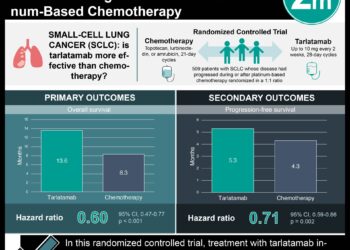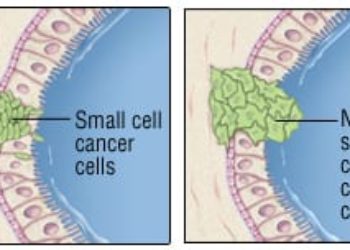2 Minute Medicine Rewind September 2 – September 8, 2013
Image: PD
In this section, we will highlight the key high-impact studies, updates, and analyses published in medicine during the past week.
Door-to-Balloon Time and Mortality among Patients Undergoing Primary PCI
For ST elevation myocardial infarctions (STEMI), percutanous coronary intervention (PCI) is recommend with strong evidence for benefit for a door-to-balloon time of 90 minutes or less. In this retrospective database analysis of patients in the CathPCI registry between 2005 and 2009, investigators reviewed 96,738 STEMI admissions for their door-to-balloon times and subsequent outcomes. The investigators found a decline in median door-to-balloon times from 83 minutes in the first year starting July 2005 to 67 minutes in the last year starting July 2008 (p < 0.001) and a greater proportion of patients with a door-to-balloon time less than 90 minutes (59.7% vs. 83.1%). There were no improvement in either risk adjusted or non-risk adjusted in hospital mortality (adjusted 5.0% vs. 4.7%, p = 0.34, not adjusted: 4.8% vs. 4.7%, p = 0.43) or 30-day mortality.
Patients with cardiovascular disease are recommended to take large combinations of medications as many medications have been shown to have efficacy in decreasing morbidity and mortality related to hyperlipidemia, hypertension, and other diseases associated with cardiovascular health. Most patients have difficulty taking many medications long term, and fixed-dose combination (FDC) pills have been suggested to improve medication adherence. In this multicenter, randomized, open label trial, 2004 participants were randomized to combination pills with aspirin, simvastatin, lisinopril, and either atenolol or HCTZ or usual care. At 15-month follow up, patients with FDC pills reported improved adherence (86% vs. 65%, p < 0.001) with a not statistically significant difference in adverse cardiovascular events (5% vs. 3.5%, p = 0.09). There was a small improvement in systolic blood pressure (129.2 vs. 131.7mmHg, p < 0.001) and LDL cholesterol (84.2 vs. 88.4mg/dL, p , 0.001). The study investigators suggest that the effect was largest for patients with the lowest adherence as baseline.
Effect of Iron Fortification on Malaria Incidence in Infants and Young Children in Ghana
WHO guidelines recommend the limitation of iron supplementation in malaria endemic regions for the potential theoretical risk that iron supplementation can increase malaria risk. In this double blinded, cluster randomized trial of children in Ghana, investigators randomized participants to micronutrient powder with or without iron supplementation for 5 months and insecticide-treated bed nets. By intention-to-treat analysis, participants receiving iron supplementation had a decreased malaria incidence (76.1 vs. 86.1 episodes/100 child-years, risk ratio 0.87 (95% CI, 0.79-0.97) however differences were not statistically significant after adjusting for baseline iron deficiency and anemia status [adjusted RR 0.87 (95% CI, 0.75-1.01)]. In tandem with insecticide-treated bed nets, there was n oevidence that iron supplementation had an increased risk of malaria in young children in malaria-endemic regions.
Intimate partner violence (IPV) has been suggested to be the leading cause of nonfatal injury to women worldwide. In this multinational cross-sectional study of women in orthopedic clinics, investigators surveyed 2344 women about their history of intimate partner violence. From survey responses, 34.6 of women have experienced IPV in their lifetime, 16.0% of women experienced IPV within the last year, and 1.7% of women citing IPV as the cause of their current clinic visit. 14% of women have been asked about IPV in a healthcare setting. Participants in the Netherlands and Denmark reported less IPV compared to participants from the USA and Canada.
Probability of Cancer in Pulmonary Nodules Detected on First Screening CT
Recently the United States Preventative Services Task Force recommended the use of low dose CT imaging for the screening of lung cancer for particular high risk populations. In this prospective study of CT imaging results of patients in the Pan-Canadian Early Detection of Lung Cancer Study (1871 participants had 7008 nodules, of which 102 were malignant), investigators identified demographic characteristics and CT findings to construct a predictive model of lung cancer. Their model found older age, female sex, family history, emphysema, larger nodule size, location of nodule in the upper lobes, partially solid nodules, lower nodule count, and speculation to be predictive of lung cancer. The area under the receiver-operating-characteric (ROC) cerve was more than 0.90, even for nodules smaller than 1cm.
By David Ouyang
© 2013 2minutemedicine.com. All rights reserved. No works may be reproduced without written consent from 2minutemedicine.com. Disclaimer: We present factual information directly from peer reviewed medical journals. No post should be construed as medical advice and is not intended as such by the authors or by 2minutemedicine.com. PLEASE SEE A HEALTHCARE PROVIDER IN YOUR AREA IF YOU SEEK MEDICAL ADVICE OF ANY SORT. Content is produced in accordance with fair use copyrights solely and strictly for the purpose of teaching, news and criticism. No benefit, monetary or otherwise, is realized by any participants or the owner of this domain.







